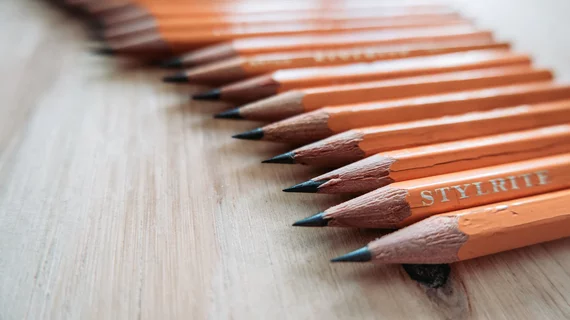Tattoo you: Medical monitors can now be drawn on the skin with pencil and paper
Engineers have come up with a way to place paper-thin sensors on the skin using literal paper. The kind you use in your copy machine will do.
And so will actual pencils, as long as their lead contains enough graphite.
The inventors, led by Zheng Yan, PhD, of the University of Missouri, describe their work in Proceedings of the National Academy of Sciences.
According to the study abstract, Yan and colleagues envision all sorts of potential medical uses for the innovation.
The novel devices, they state, “can perform real-time, continuous and high-fidelity monitoring of a range of vital biophysical and biochemical signals from human bodies, including skin temperatures, electrocardiograms, electromyograms, alpha, beta, and theta rhythms, instantaneous heart rates, respiratory rates, and sweat pH, uric acid and glucose, as well as deliver programmed thermal stimulations.”
What’s more, the team found readings generated by the pencil & paper technology compare favorably with those obtained using far pricier conventional technologies.
In internal coverage posted by Mizzou News, Yan offers examples of the possibilities.
“[I]f a person has a sleep issue, we could draw a biomedical device that could help monitor that person’s sleep levels,” he says. “Or in the classroom, a teacher could engage students by incorporating the creation of a wearable device using pencils and paper into a lesson plan. Furthermore, this low-cost, easily customizable approach could allow scientists to conduct research at home, such as during a pandemic.”
Click here for the study and here for Mizzou’s own coverage.

